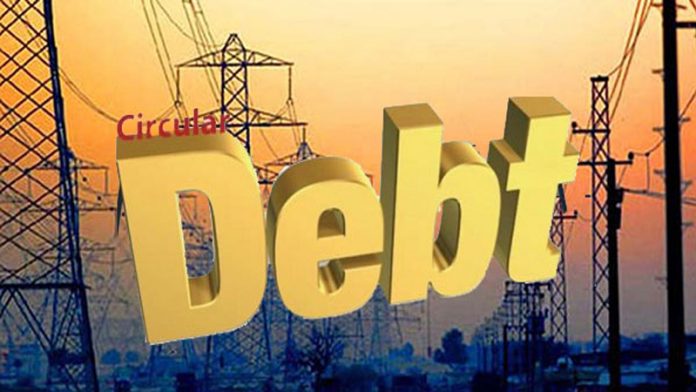Pakistan’s energy sector is grappling with soaring circular debt, now reaching a staggering Rs5.73 trillion, as revealed by official documents.
This figure has exceeded the previous estimate reported to the International Monetary Fund (IMF) two months ago by Rs1.5 trillion.
The breakdown of this debt shows that the power sector’s dues have surpassed Rs2.7 trillion, while the gas sector owes over Rs3 trillion, cumulatively pushing the total unfinanced debt to Rs5.73 trillion.
This amount represents 5.4% of Pakistan’s GDP, underscoring the ineffectiveness of price hikes as a strategy to mitigate the circular debt issue.
The IMF, in a statement dated November 15th, had already underscored the urgency of addressing the burgeoning circular debt, which at the time accounted for over 4% of the GDP.
The recent figures not only indicate a failure in policy implementation but also raise concerns about the strategies advised by the World Bank, the IMF, and the Pakistani government.
Despite successive increases in gas and electricity tariffs, affordability remains a pressing issue for consumers. Another round of gas price hikes is anticipated as part of the IMF program conditions.
The government’s handling of the energy sector is further brought into question with the appointment of an additional secretary from the Ministry of Finance to the board of directors of the Sui-Northern Gas Pipeline Limited (SNGPL).
During the current fiscal year, electricity prices have been raised by over Rs8 per unit, and gas prices have seen a 520% increase since November.
Energy Minister Mohammad Ali has proposed a plan to reduce the energy sector’s circular debt by Rs1.268 trillion or 22% of the total debt. This plan, which includes budget support for three days, awaits approval from the IMF and boards of state-owned companies. A similar plan by the Ashfaq Tola-led committee was previously hindered by bureaucratic obstacles.
The proposed settlement plan by the government also involves waiving late payment surcharges worth Rs133 billion from state-owned companies.
However, the viability of power and gas sector companies continues to deteriorate due to the circular debt, affecting Pakistan’s borrowing options.
The country owes over Rs400 billion to Chinese power plants, and China has now conditioned the approval of a $600 million commercial loan on settling this portion of the debt.
The interim government has proposed a reduction in electricity tariffs for industrial consumers from 14 cents to 9 cents per unit. However, this plan, which includes withdrawing subsidies from domestic consumers to support the industrial sector, is yet to be approved by the Special Investment Facilitation Council.
Additionally, the interim government has imposed a monthly fixed charge of Rs465 to Rs1,500 on gas consumers, leading to a substantial rise in gas prices. This increase contradicts the government’s claim that it is not part of the price hike and is disputed by the Pakistan Bureau of Statistics.
In 2022, public sector companies, including all ten power distribution companies, reported combined losses of Rs730 billion. The Lahore Electric Supply Company, once deemed efficient, recorded a loss of Rs30.2 billion, while the National Highway Authority topped the list of loss-making entities with Rs168.5 billion.
The Ministry of Privatisation has advised against the privatization of the power sector, recommending instead the outsourcing of its management. The power sector currently employs around 140,000 people.





MY PERSONAL EXPERIENCE ON LOST CRYPTO RECOVERY!
I read so many stories about bitcoin loss to scams. I will like to start by saying the agencies responsible for bitcoin security has really done nothing to help locate stolen or lost coins. In my situation my MacBook was hacked by someone that had access to my emails, i immediately contacted blockchain and they only wasted my time, after which i worked towards getting help else where, i was referred to consult a bitcoin expert who helped track and retrieved my 3.3 btc, for an agreed fee. I was more than grateful and willing to pay more after the job was done. Thankful i didn’t fall victim and would like to recommend ( MORRIS GRAY 830 @ G maiL . COM )
will circular debt end in next year
When 20 percent people in a country pay for the electricity bills of the entire nation, this was to happen. The rest are either electricity thieves or ‘muft khoras’ like employees of WAPDA, DISCOs and similar others. Unfortunately, no one is talking about this abnormality and even the media is quiet. Perhaps they are all beneficiaries of this corrupt system.
fools make policies and they kept on increasing the tariff instead of paying to the immediate buyer and so on..